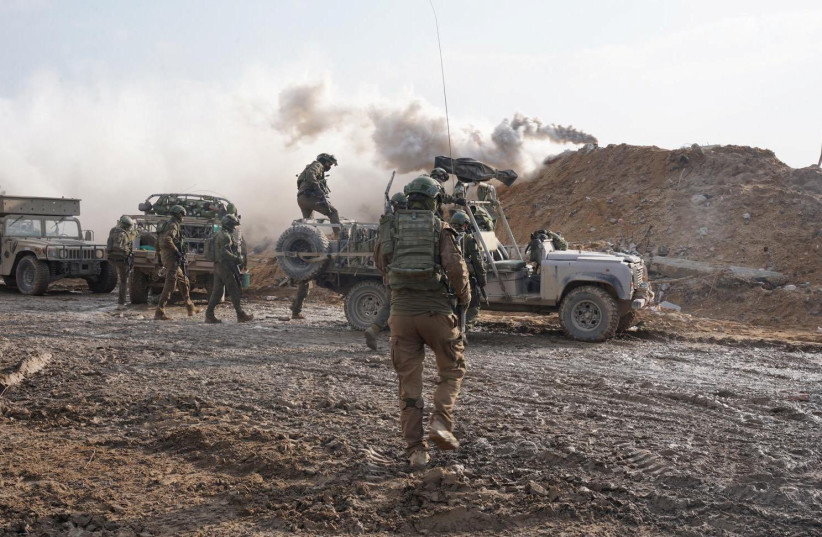It is no secret that there has been a race taking place for years between Arab countries seeking peace, security, and stability on the one hand; and what is known as the “Axis of Resistance,” which leads Iran to radicalize the region and continue waves of violence and bloodshed under various titles.
The Palestinian issue is at the heart of the agenda of this axis, which provides Iran and its agents with the cover they need whenever the opportunity arises to return things to square one.
Objectively, we say that the matter is not only related to Iran and its terrorist arms. There are other terrorist and extremist ideological organizations such as the Muslim Brotherhood. They all seek to undermine stability and ignite conflicts and wars with different claims and arguments.
There is also media discourse that fuels violence, incites hatred, and exerts psychological and moral stress. This is what makes us always call for concerted regional and international efforts to eliminate it.
The conflict in Gaza will inevitably end, like all bloody military conflicts in history. But the human and material cost of this conflict remains, as Israel is intent on eradicating the terrorist Hamas movement.

The Middle East will never be the same as it was before October 7
It is certain that after October 7, 2023, the Middle East will no longer be the same. Anyone who doubts this should follow what is going on in all public arenas, whether through social media, or the general climate prevailing in the Arab world.
The Arab region pays a heavy price for terrorism, violence, bloodshed, and everything associated with these phenomena, including poverty, deterioration of living conditions, corruption, and the collapse of health and educational services in several Arab regions and countries.
We must acknowledge that igniting a new conflict in Gaza is turning back the clock. Iran has succeeded in bringing back vocabulary and concepts that had disappeared from the Arab dictionary, albeit to varying degrees and from one country to another, as peace agreements were concluded during the past years and decades.
There have been efforts to spread a culture of coexistence and tolerance, push toward development, cultural, commercial and economic exchanges, and focus on the interests of peoples in parallel with the search for a just settlement to the Palestinian issue.
It is now difficult to build expectations about the possibility of the Middle East peace train proceeding at the pace that preceded October 7.
There are hopes, and there are facts.
WE MUST differentiate between hopes and facts regarding this issue. Reasonable people in the Arab region, and to the same extent in Israel, wish to turn the page on this conflict as quickly as possible, analyze its effects and disastrous repercussions, and heal and mend wounds on both sides in order to look to the future.
But reality indicates that it is extremely difficult. This happened in a short period, especially for the Arab and Islamic peoples to absorb.
There may be success in resuming channels of communication on the official levels, but that will not prevent the advance planning carried out by Hamas and other terrorist militias. They have undermined the atmosphere and environment of peace that many in our region have been working on and planting its seeds for many years.
This is because Iran has thrown new arms into the conflict, as seen in the strikes by the terrorist Houthis, and moving the region into a religious conflict par excellence. This is a dangerous issue whose future consequences are not appreciated by many in the Arab region.
It is no secret that religious conflicts are more dangerous and influential. Everyone pays the price for them – not only in our region, but in the entire world. They open the door for the entry of extremists and terrorists from all countries and regions, who join the open arenas of jihad without prior planning or central leadership for these conflicts.
In addition to the expected return of terrorist organizations to the scene, new groups and organizations may emerge that may be bloodier and more violent than the terrorist generations that the international community already has succeeded in confronting. Undoubtedly, the “lone wolf” phenomenon is emerging, which could constitute a reaction to the enormous psychological, moral, and media pressure exerted by many parties in our region and the world.
Our dilemma, as Arabs, is that other regional parties are entering the Palestinian-Israeli conflict and employing it in the interest of achieving strategic goals specific to these parties. For this reason, the conflict turns into broad headlines within the agenda of competition for regional and international influence and hegemony, and tens of thousands of victims pay with their lives for these purposes.
The Palestinian refugee crisis will also worsen for years to come. It will add to the crises of the Arab region, making asylum, diaspora, and displacement the most prominent headlines in the Arab region, from Sudan to Libya, Syria, and the Palestinian territories.
These ideal conditions are in the interest of terrorist organizations and those regional and international powers seeking to spread chaos and unrest in the Middle East, within the framework of a strategic struggle over status and influence in the global system.
The writer is a United Arab Emirates political analyst and former Federal National Council candidate.
